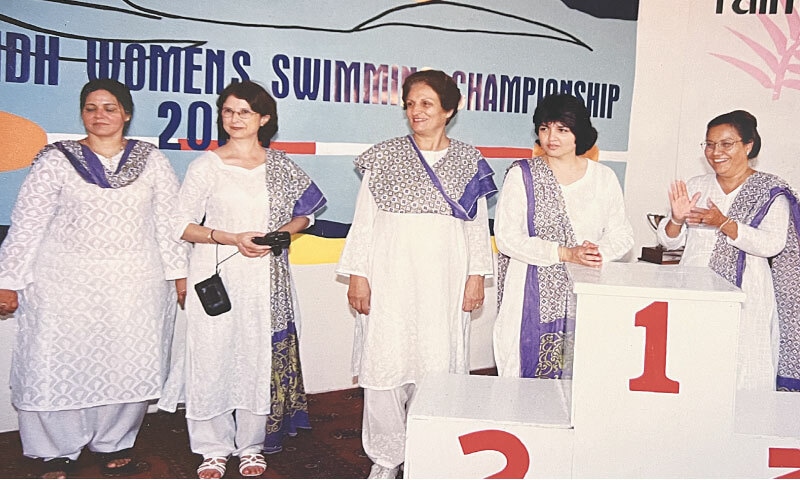-
-
- In the late 1980s, female swimmers like Shaan Kandawalla had no platform to compete, leading mothers to establish the Women’s Sindh Open in 1992.
- Despite strict dress codes and lack of funding, persistent advocacy led to Pakistan’s first female international swimming representation in 1997.
- Poor governance still hampers progress, but KWASA continues to sustain women’s swimming, ensuring young athletes have a platform to thrive. In the late 1980s, Pakistan’s fastest female swimmer, Shaan Kandawalla, had to sneak into a men’s race just to compete.
-
The story of women’s swimming in Pakistan is not just about athletes but about the determined mothers who made it possible. In 1992, a group of Karachi-based women, led by Veena Masud, Nargis Rahimatoola, Fatima Lakhani, and others, formed the Karachi Women’s Amateur Swimming Association (KWASA). They launched the Women’s Sindh Open, a competition that gave female swimmers their first real chance to race competitively. Despite strict conditions—no male spectators, knee-length swimsuits, and zero media coverage—these women built a legacy from scratch.
The early years were challenging. Competitors swam in leotards, dealt with the taboo around tampons, and had no structured coaching. Yet, they persevered. Corporate sponsorships, notably from Colgate-Palmolive, helped elevate the event, making it a staple in Pakistan’s swimming calendar. The Sindh Open soon became a proving ground for future champions, including Pakistan’s first female Olympian swimmer, Rubab Raza.
By 1997, Pakistan’s women swimmers had made their international debut at the Women’s Islamic Games in Tehran. Though they were not yet competing for medals, their participation alone was groundbreaking. However, bureaucracy, financial neglect, and a lack of proper facilities have since stifled the sport’s progress. Without government backing, parents today must fund their children’s participation in global championships, making swimming an elite privilege rather than a national sport.
Despite this, the legacy of KWASA and these pioneering mothers remains. For over 30 years, they have nurtured the sport like their own child, creating a sanctuary for female athletes to thrive. The Sindh Open has grown into an event where young girls can compete, form lifelong friendships, and experience the empowerment that sports bring.
People should see the impact sports has in empowering women. It breaks down barriers and opens so many doors for them. And thanks to these trailblazers, the doors remain open for the next generation of Pakistan’s swimmers.
Stay tuned to wow360.
